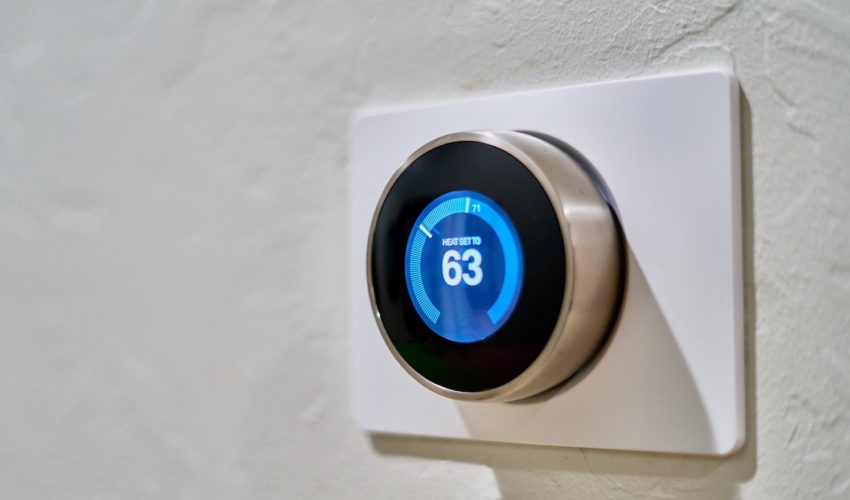Smart thermostats like the Nest, Ecobee and Honeywell Lyric are all the rage, and you’re probably wondering if it’s worth it to make the switch in your home or business. In San Antonio and Central Texas, where we can have big temperature swings in the summer and fall, a “smart” thermostat could save you a lot of money — but what about the potential drawbacks? We at North East Air Conditioning get asked about smart thermostats often, so we’ll break it down and help you make the right decision for you.
What are some of the benefits of a smart thermostat?
Control the device from anywhere, even from outside your home
We’ve all been there: you come home from work, step inside your chilly home and realize your A/C has been running at full blast all day. Few things drive up your utility bill more! But with a smart thermostat, you can connect the device to your home’s Wi-Fi and access it remotely. By doing this, you not only check what the temperature is inside your home by using an app on your phone, but you can set the temperature from outside your home too.
Smart learning and automatic temperature adjustments
If you’re more inclined to “set it and forget it,” you’ll find that a smart thermostat’s algorithmic learning works great for keeping you comfortable. One major benefit of these devices is that they can “learn” when you’re at home, when you’re at work, and when you’re sleeping, so they automatically adjust the temperature based on your preferences. After just a few days of using a smart thermostat as you would a traditional thermostat, you’ll find that the thermostat has saved your preferences and automatically adjusts based on your habits. This makes having a comfortable home suited to exactly your preferences as easy as can be.
Reduced energy consumption = lower utility bills
All that algorithmic learning and remote control of your thermostat can definitely increase your overall comfort and convenience, but what many people care about the most is the potential savings for your wallet. The thought is that if your thermostat is optimized to only be in use when you’re enjoying it, you can optimize your energy consumption and subsequently lower your utility bill. We’ve seen this to be true, but be wary of any company making grand claims. If you’re already taking steps to consume energy in a smart way, you’ll likely only see a nominal difference in your electric bill.
What are some of the drawbacks of a smart thermostat?
High upfront cost
Smart thermostats are still relatively new to the market and, as such, you’ll be paying a premium for that new technology. You can expect to pay almost 10x as much as you would for a traditional thermostat, which for many potential customers can be hard to swallow. Your energy company may have a program that helps offset some of the cost of a smart thermostat. CPS Energy, for example, provides $150 towards the cost of a smart thermostat. These programs often come with caveats, like allowing the energy company to control your thermostat during peak periods, so make sure to read any fine print if you enroll in one of these programs.
Prone to hacking and cyber security threats
Any device that connects to WiFi represents a threat to your cyber security, and a smart device that operates as a function of your home can even threaten your home’s security as well. Though uncommon, there are several alarming reports of hackers accessing Nest devices remotely. Ahead of purchasing any smart device, we all need to weigh the risk of hacking and potential threat to your home’s security vs. convenience.
If the company’s services go down, you can lose all heating and cooling functionality
Smart thermostats rely on technology to operate. Like all other technology companies, an outage means limited or a total loss of functionality. If one of these companies has an outage, you’ll lose the ability to control your thermostat during the outage and could even lose the ability to turn on your A/C or heater. These outages are not uncommon but not rare — you can see all recently reported Nest outages here — so you’ll need to evaluate whether you can handle an outage for an unknown amount of time.
Should I get a smart thermostat?
Ultimately, only you can determine whether a smart thermostat is the right decision for your house. You’ll need to weigh the convenience and comfort these devices offer against upfront cost and the potential risks we’ve outlined. We always recommend hiring a professional to install any thermostat, be it smart or traditional, so give us a call and we’ll be happy to consult on and install your new thermostat.


